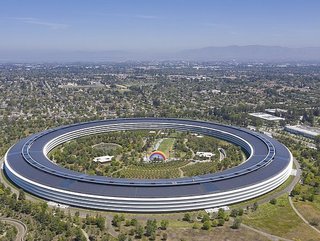US firms 'facing Scope 3 regulatory shock to system'

The rapidly evolving Scope 3 regulatory landscape is set to create a huge challenge for US organisations, whose reporting of greenhouse gas emissions is currently unregulated.
Bridget McCormick is Principal Consultant at Proxima, the supply chain and procurement specialist that is owned by management consulting firm, Bain & Co.
Referencing California’s recently announced Scope 3 climate disclosure laws, McCormick observes that, in the US, “there aren’t firm laws in place nationwide yet that require reporting and emissions targets”, meaning organisations “are able to say they are working to improve their sustainability but aren’t being held accountable”.
But, she says, that situation is set to change, when the California Climate Accountability Act comes into force in 2026, and puts organisations in the state under pressure to have clear cross-company accountability roles for climate reporting, with Scope 3 reporting requirements the most exacting part of this.
“This is going to create a lot of noise in the Scope 3 world because historically many organisations haven't measured Scope 3 emissions, despite this being responsible for the bulk of an average company's carbon footprint,” McCormick says of the Act.
She goes on to point out the Act goes further, even, than the US Securities and Exchange Commission’s (SEC) proposed climate rule, because it applies to both public and private companies that do business in the state. The SEC’s proposed climate rule targets only public companies that report to the SEC whose Scope 3 is greater than 40% of total greenhouse gas emissions.
California Scope 3 law more stringent than SEC's
“The new California corporate climate disclosure requirements will require organisations with an annual revenue of $1bn or more to disclose Scopes 1, 2 and 3 emissions yearly,” she says. “Those with yearly revenues of over half a billion dollars will also be required to report their climate-related financial risks every two years.”
Yet despite the more stringent nature of the California Act, McCormick says that, in general, national regulations – in whichever country they are passed – have a bigger impact on businesses than local regulations “because the implications of the regulations trickle more broadly throughout the supply chain”.
Citing the SEC’s proposed emissions regulations, she says: “These will have a broader impact [than the California Act] because organisations who are required to report will begin asking for data and risk information from their Scope 3 supply chain, and it will become a cascaded request for information.”
She adds: “National regulations on Scope 3 reporting not only impact the mandated organisations directly, but also all suppliers and partners along those organisations’ supply chains.”
McCormick continues: "Scope 3 is all indirect upstream and downstream supply chain, and so affected organisations require emissions reporting from their own suppliers, regardless of if the regulation directly impacts those suppliers."
EU's CSRD already in effect in Europe
In Europe, because of the EU, emissions laws and regulations are not just national, but pan-regional.
The Corporate Sustainability Reporting Directive (CSRD) – which came into effect in January 2023 – requires companies to report on the impact of corporate activities on the environment and society, and requires the audit of reported information.
Referencing the ever-shifting challenges faced by organisations globally around emissions reporting, McCormick says this is “challenging and time-consuming”.
She adds: “To influence your suppliers, you need to educate your team and adapt to current policies, processes, and ways-of-working with suppliers in a way that supports your carbon reduction goals.
“All of this requires an investment – whether that be of time, people, technology and external resources.”






